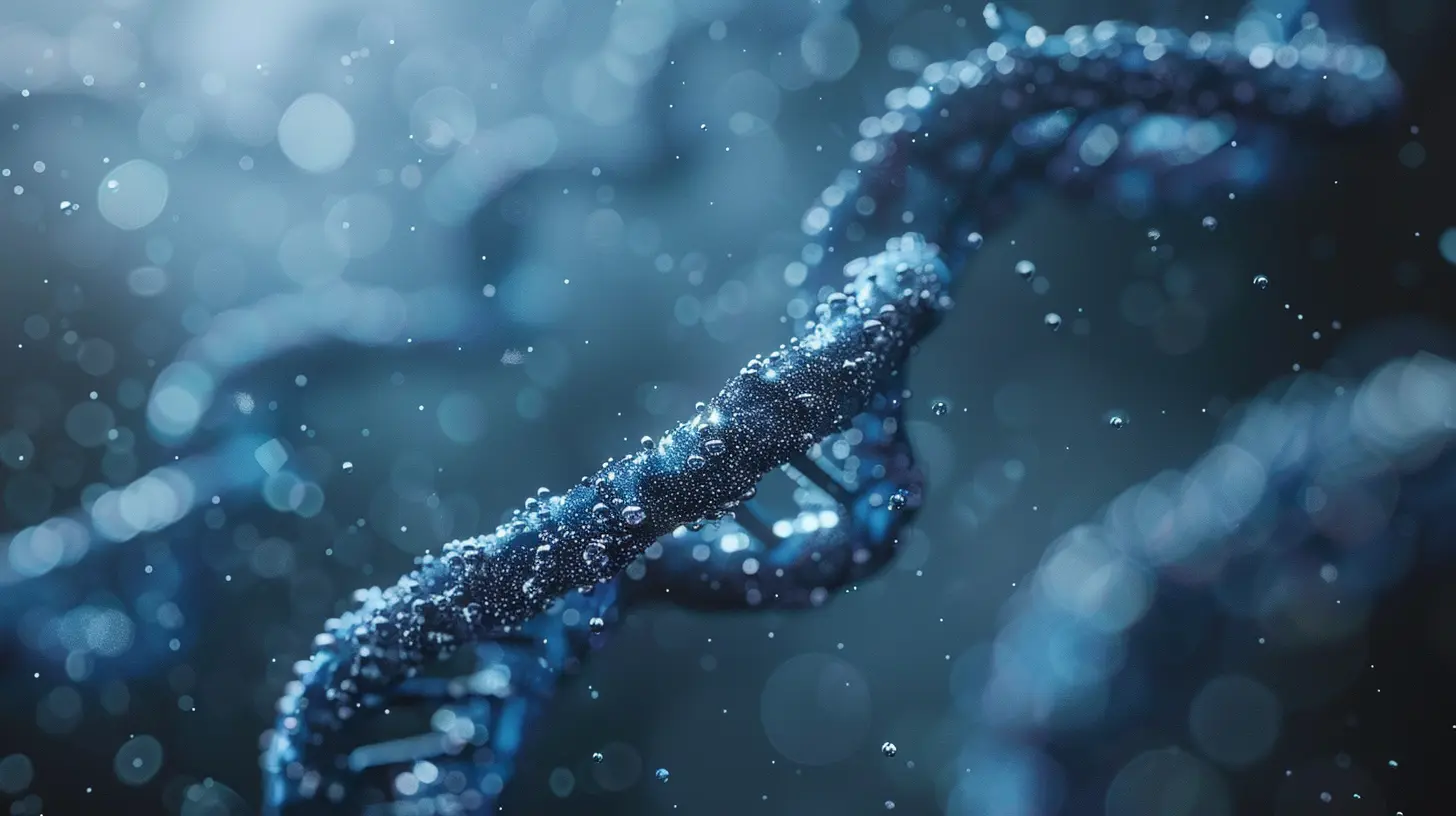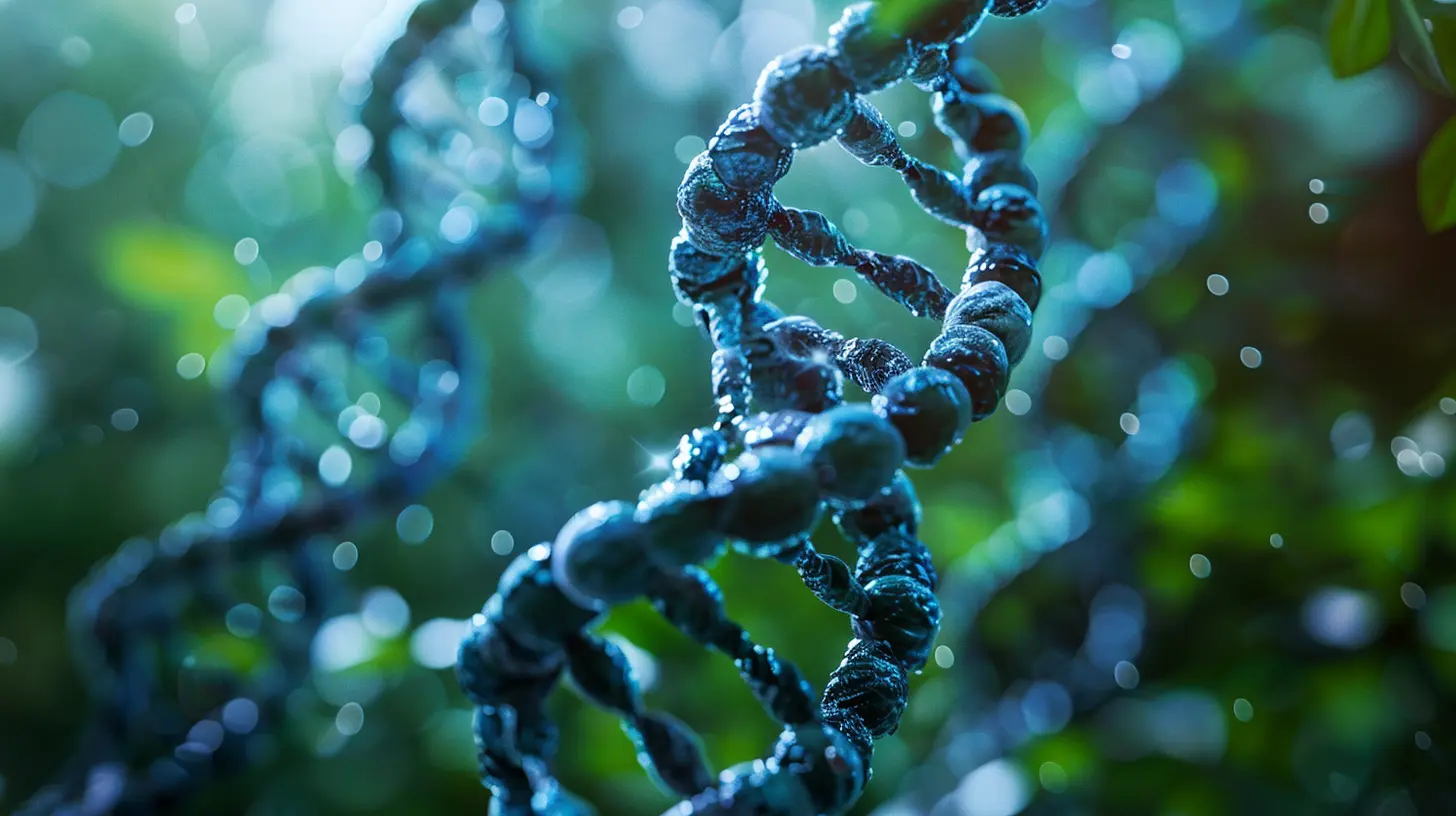The Role of Genetics in PTSD: Are Some People Predisposed?
29 August 2025
When we think about trauma, we often focus on the event itself—combat, assault, a car crash, or any life-altering experience. But here’s something that might surprise you: two people can go through the exact same traumatic event, and only one of them develops PTSD. Why is that? What makes one person more vulnerable than another?
Well, a big part of the answer lies in our genes.
Yes, our biology—the stuff tucked deep inside our DNA—might have more influence over our mental health than we like to admit. In recent years, researchers have started peeling away the layers of PTSD (Post-Traumatic Stress Disorder), and what they’re finding points to a fascinating connection between our genetic makeup and how we process trauma.
Let’s dive into the science behind it, broken down in a way that actually makes sense.
What Exactly Is PTSD?
Before jumping into the genetics side of things, let’s make sure we’re on the same page about PTSD.Post-Traumatic Stress Disorder is a mental health condition that can develop after someone experiences or witnesses a traumatic event. Common symptoms include:
- Flashbacks or nightmares
- Avoidance of reminders
- Hyperarousal (think irritability, jumpiness)
- Negative changes in mood or thinking
The thing is, not everyone who goes through trauma ends up with PTSD. In fact, the majority don’t. That’s where genetic predisposition comes into play.
Nature vs. Nurture: That Old Debate Again
You’ve probably heard this argument before—are we shaped more by our experiences or our genes?When it comes to PTSD, it turns out both sides matter. Yes, traumatic experiences are the trigger, but your genetic wiring might determine how you respond to that trigger. Think of genetics as the soil—and the trauma as the weather. Depending on the type of soil you’ve got, a storm might cause lasting damage, or it might just roll off the surface.
The Science Behind Genetic Predisposition
So, how do genes make someone more or less susceptible to PTSD?Research shows that certain genetic variations can influence how your brain reacts to stress, processes emotions, and stores memories. These variations often involve genes related to:
- Stress hormones (like cortisol)
- Neurotransmitters (like serotonin and dopamine)
- Brain structure and function, particularly areas like the amygdala and hippocampus
Let’s break some of these down.
The Role of the FKBP5 Gene
One of the most well-studied genes in PTSD research is FKBP5 (yeah, it’s a mouthful). This gene helps regulate the body’s response to stress by influencing how our cells respond to cortisol, the primary stress hormone.Here’s the deal: some people have a version of FKBP5 that makes their stress response system more sensitive. When trauma hits, their bodies might go into overdrive, cranking out cortisol in ways that overload the brain. This can mess with memory storage and emotional regulation, both of which are critical in PTSD.
And if someone with this sensitive version of FKBP5 also had a rough childhood? The risk goes up even higher. Why? Because early life stress can “flip on” certain genes, setting the stage for later mental health struggles. This is the concept of epigenetics in action.
COMT and Serotonin: Mood Matters
Another player in the genetics game is the COMT gene. This one affects how neurochemicals like dopamine are broken down in the brain. Variations can lead to heightened emotional reactivity—which isn’t exactly helpful when you're trying to recover from trauma.The serotonin transporter gene (5-HTTLPR) also plays a role. People with certain versions of this gene seem to be more emotionally reactive and less resilient to stress. In studies, those with the “short” allele (a gene variant) showed higher chances of developing PTSD, especially after repeated trauma.
So if your brain doesn’t regulate mood or process stress efficiently, trauma might hit you way harder.
Is PTSD Hereditary?
Here’s where it gets even more mind-blowing—yes, PTSD can run in families.Twin studies (where researchers study identical twins who share 100% of their DNA) have shown that genetics account for roughly 30% to 40% of the risk for developing PTSD. That’s massive.
In particular, studies of Vietnam War vets found that if one twin had PTSD, the identical twin had a significantly higher chance of developing it, even if their combat exposure wasn’t the same. That says a lot about the influence of shared genetic makeup.
Brain Structure: Genetics and the Hippocampus
Brains aren’t all built the same. One key area that often comes up in PTSD research is the hippocampus, which helps regulate emotions and plays a role in forming memories.What scientists have found is that people with PTSD often have a smaller hippocampus than those without the condition. The million-dollar question is: does trauma shrink the hippocampus, or are some people born that way?
Turns out, for some, it might be the latter. A smaller hippocampus might actually be a pre-existing condition that increases PTSD risk. And yes—you guessed it—this size variation can be impacted by genetics.
Epigenetics: Trauma Can Turn Genes On and Off
Here’s where things get spooky and fascinating: trauma can actually change gene expression.This is the field of epigenetics, which studies how environmental factors—like stress or abuse—can switch genes on or off. These changes don’t alter the DNA sequence itself, but they do change how genes function.
Even more jaw-dropping? These changes might be passed down. That’s right—some scientists believe that the effects of trauma can be inherited by future generations. Studies on Holocaust survivors and their children support this idea. It’s not just the trauma that echoes through families—it’s the biological response to it.
Genetic Testing for PTSD: Are We There Yet?
With all this talk of genes, you might be wondering: can we test for PTSD risk?Well, not quite yet.
We’re still in the early days of linking specific genes to mental health outcomes. Although researchers have identified dozens of gene variants associated with PTSD, the complexity of the disorder means that no single gene can predict it. It's more like a symphony of genes playing together, with environmental factors acting as the conductor.
Someday, we might see personalized mental health treatments based on genetic profiles—but today, we’re still building that roadmap.
So, Are Some People Truly Predisposed?
Yes—and no.Genes can absolutely set the stage for how you respond to trauma, but they don’t seal your fate. Think of it like carrying a loaded gun—it’s dangerous, but it still needs a trigger.
In other words, a person might have a genetic vulnerability to PTSD, but without experiencing trauma, they may never develop the disorder. Likewise, someone without any known genetic risk can still develop PTSD under extreme circumstances.
This is why understanding both the biological and environmental components is key.
What Does This Mean for Treatment?
Knowing that biology matters opens up new avenues for treatment.For example:
- Tailored Therapies: In the future, treatments might be personalized based on a person’s genetic profile.
- Medication Matching: Certain antidepressants might be more effective depending on how your brain processes serotonin.
- Early Intervention: If someone has a known genetic risk (and a history of trauma), clinicians might intervene earlier, potentially preventing PTSD from taking root.
But for now, traditional treatments like cognitive-behavioral therapy (CBT), exposure therapy, and EMDR remain the main tools in the toolbox. And they work—for many people, regardless of genetic background.
Final Thoughts
So, are some people predisposed to PTSD? The answer is a resounding yes—but with a big asterisk.Genetics play a significant role, influencing how our brains and bodies respond to trauma. But they don’t act alone. Environmental factors, past experiences, and even social support can tip the scales in either direction.
If you or someone you love is struggling with PTSD, understanding this genetic component can be empowering. It’s not a sign of weakness. It’s biology. And with the right support, healing is not just possible—it’s probable.
Remember, trauma might write the opening chapter, but it doesn’t have to dictate the whole story.
all images in this post were generated using AI tools
Category:
Post Traumatic Stress DisorderAuthor:

Janet Conrad
Discussion
rate this article
1 comments
Natasha Thompson
This article raises important questions about the interplay between genetics and PTSD. It’s fascinating to consider how our biological makeup might predispose certain individuals to trauma responses. Understanding these factors could lead to more personalized treatments and greater empathy for those struggling with PTSD, highlighting the complexity of mental health.
September 13, 2025 at 4:29 AM

Janet Conrad
Thank you for your insightful comment! I'm glad you found the exploration of genetics and PTSD valuable. Understanding these connections is indeed crucial for advancing treatment and fostering empathy.


